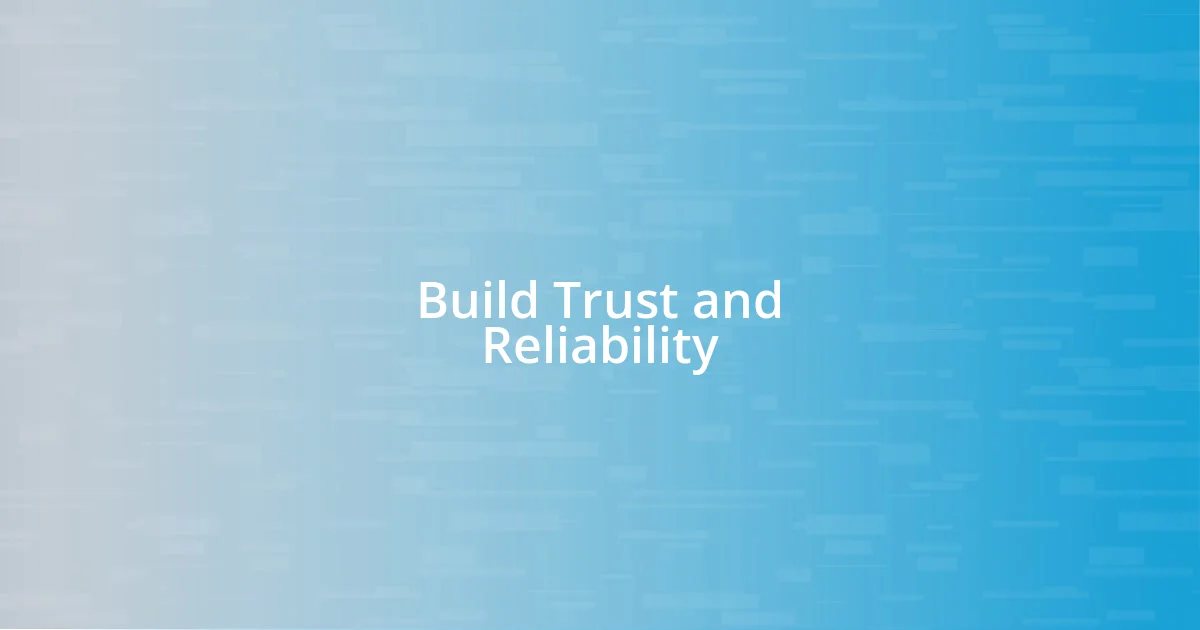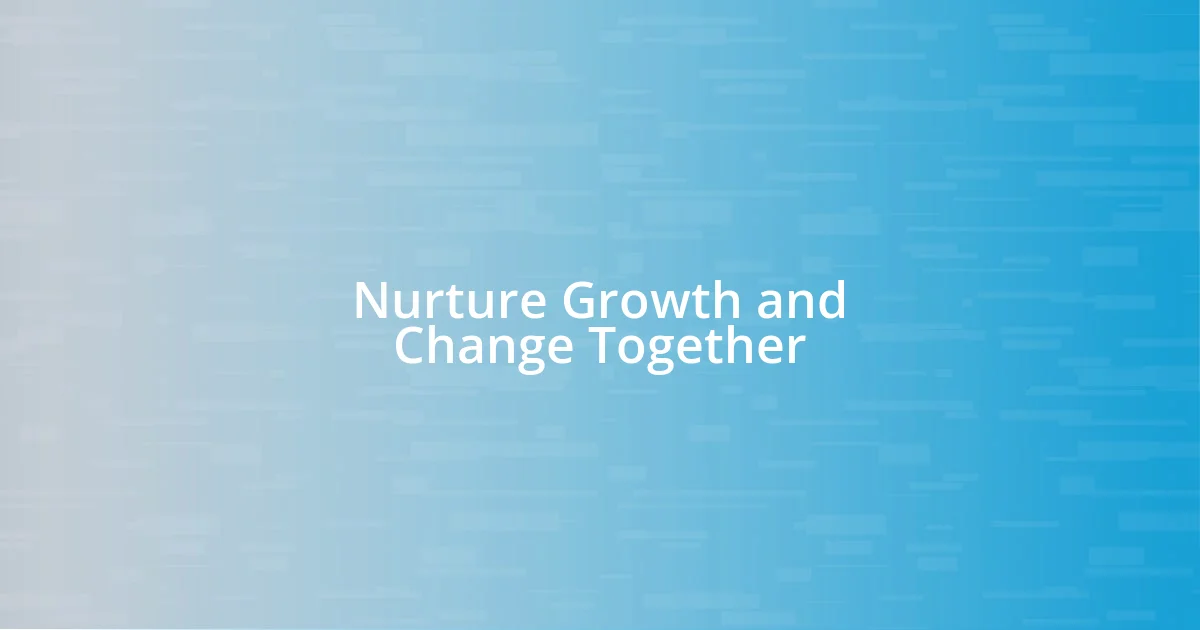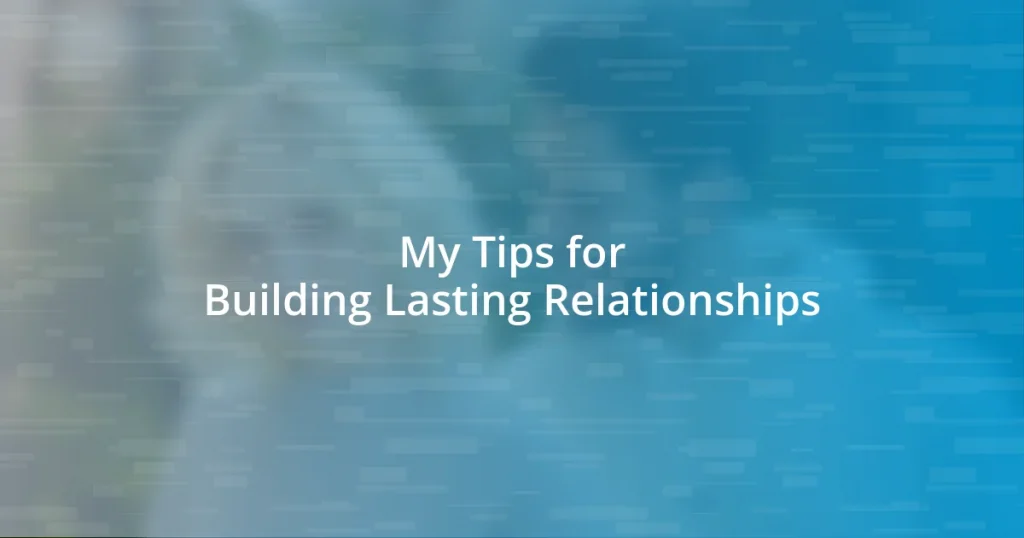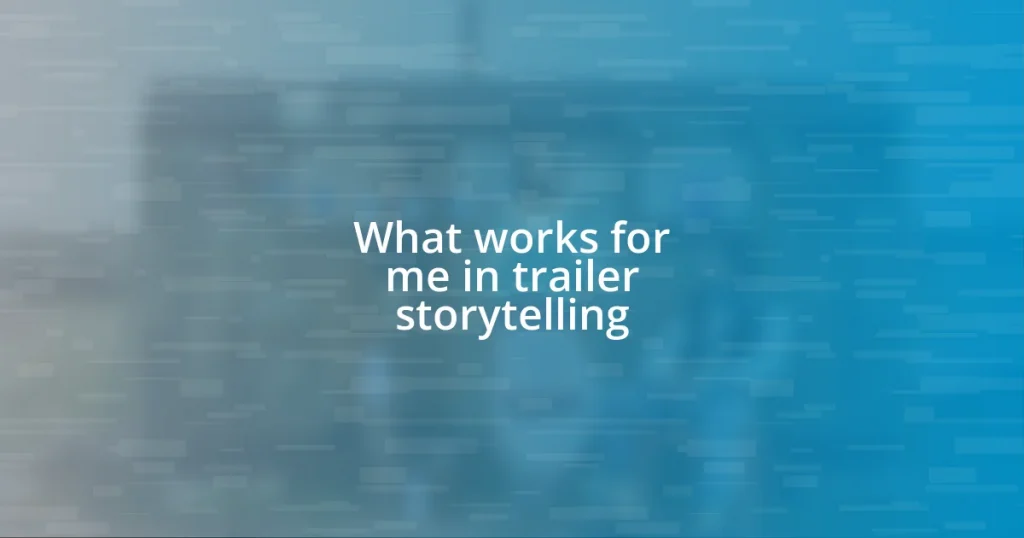Key takeaways:
- Building a solid foundation requires trust, open communication, and reliability, as these elements strengthen the relationship over time.
- Expressing appreciation and affection through small gestures fosters emotional connections and reinforces bonds between partners.
- Handling conflicts constructively and nurturing growth together enhances intimacy and helps navigate changes, further solidifying the relationship.

Understand Relationship Foundations
Building a solid foundation in any relationship is crucial. I remember a time when I got swept up in the excitement of a new romance, only to realize later that we hadn’t taken the time to discuss our values and beliefs. How often do we rush into things without understanding the core elements that hold a partnership together?
Trust is one of those bedrock elements. I once confided in a close friend about a struggle I was facing, and her unwavering support showed me how vital trust really is. Can you think of a moment when you felt completely safe with someone? That feeling is the essence of a lasting bond.
Moreover, communication plays a pivotal role in building relationships. Early in my career, I had a colleague who avoided tough discussions, and the tension only grew. Reflecting on that, I often ask myself: how can we expect our relationships to flourish if we don’t openly share our thoughts and feelings? It’s the openness that allows connections to deepen and grow.

Communicate Openly and Honestly
Effective communication is the heartbeat of any relationship. I vividly recall a time when I hesitated to voice my concerns in a long-term friendship. When I finally did, it felt like lifting a weight off my shoulders. That moment taught me that honesty fosters a safer environment where both people can be truly seen and heard. Without that openness, misunderstandings breed resentment, often leading to unnecessary conflict.
Here are some practical tips to communicate openly and honestly:
- Be Vulnerable: Share your thoughts and feelings without fear of judgment.
- Listen Actively: Give your full attention and validate the other person’s perspective.
- Use “I” Statements: Express yourself without blaming others (e.g., “I feel hurt when…”).
- Stay Calm: Approach tough conversations with a level head to avoid escalating tensions.
- Practice Empathy: Try to understand where the other person is coming from, which can open the door to deeper conversations.
When both parties commit to this open channel, it transforms ordinary conversations into meaningful exchanges.

Build Trust and Reliability
Building trust and reliability is foundational for any lasting relationship. I remember a period in my life where I had to stand by a friend through a tough breakup. That experience showed me how showing up consistently for someone creates a sense of security that fortifies the bond. Isn’t it amazing how reliable gestures, like a simple text to check in, can mean the world?
Reliability isn’t just about being there; it’s also about following through on promises. I learned this the hard way when I made a commitment to help a colleague with a project but ended up overcommitted. My failure to deliver created a rift that took time to mend. That incident taught me that being trustworthy means being mindful of the commitments you make, and ensuring that you can meet those expectations.
In relationships, trust develops over time through small, consistent actions. For me, one memorable situation was when my partner remembered a minor detail I mentioned weeks earlier during a casual conversation. That kind of attentiveness not only fosters trust but also underscores the importance of being reliable in everyday interactions. Trust isn’t achieved overnight; it’s built brick by brick through mutual respect and attentiveness.
| Trust Building Actions | Reliability Factors |
|---|---|
| Consistent Communication | Following Through on Promises |
| Being Present during Tough Times | Respecting Boundaries and Needs |
| Sharing Vulnerabilities | Setting Realistic Expectations |

Show Appreciation and Affection
Showing appreciation and affection is like the gentle rain that nourishes a budding plant. I remember surprising my partner with their favorite snack after a long day at work. Seeing their face light up for such a simple gesture reminded me that small acts of kindness create connections that resonate deeply. Have you ever noticed how a heartfelt compliment or a handwritten note can transform someone’s day? It’s these little expressions that make us feel valued and loved.
Affection doesn’t always have to be grand; sometimes, it’s in the everyday moments that we find our greatest strength. I cherish the times when I simply hold hands with loved ones while watching a movie. It’s a simple touch, yet it speaks volumes about warmth and connection. I’ve found that these shared moments cultivate an unbreakable bond—one that grows stronger with every affectionate gesture.
Expressing gratitude can take many forms—whether it’s a thank-you message, a genuine compliment, or even a warm hug. I recall a time when I expressed gratitude to a friend for being a part of my life. Their response surprised me; they revealed how much my words meant to them, creating a ripple effect of positivity. This interaction made me wonder: what simple act of appreciation could you offer today? You never know just how much your kindness may uplift someone’s spirits.

Invest Quality Time Together
One of my most cherished experiences has been those weekends spent exploring new hiking trails with friends. Each moment we shared not only strengthened our bonds but also created memories that we still laugh about today. Have you ever felt that rush of joy when you look back on a day spent outdoors, filled with laughter and camaraderie? It’s during these times that I realized investing quality time together is not just about being present; it’s about forging connections through shared adventures.
I’ll never forget the quiet evenings I spent cooking dinner with my family. We would gather in the kitchen, chopping vegetables and sharing stories, turning meal prep into a fun activity. It made me think—how often do we let the hustle of daily life overshadow these incredible moments? Those simple, shared experiences were gifts that strengthened our family ties, reminding me that the greatest memories can come from the most ordinary activities.
Quality time doesn’t always require grand plans. Sometimes, it’s as simple as sitting on the couch with your loved ones, engaged in a spirited game or binge-watching a beloved series. I recall a night spent with friends where we turned off our phones, laughed, and caught up on life. Why do you think those seemingly mundane moments create such profound joy? I’ve come to learn that it’s the presence and attention we give to each other that truly enriches our relationships, reinforcing the idea that lasting connections thrive in the comfort of each other’s company.

Handle Conflicts Constructively
Handling conflicts constructively is crucial for any healthy relationship. I recall a heated discussion with a close friend over a misunderstood comment. Instead of letting the frustration fester, we took a step back and expressed our feelings openly. This not only cleared the air but also deepened our understanding of one another. Have you ever noticed how simply talking things through can change the entire dynamic of a disagreement?
Another strategy I’ve found helpful is focusing on the issue, not the person. During an argument with a family member, I made a conscious choice to address the situation rather than attack their character. By doing this, I felt the tension ease, and we could brainstorm solutions together. It made me wonder: what if, instead of seeing conflicts as battles to win, we viewed them as opportunities to grow closer?
Lastly, I’ve learned the value of timing. Sometimes, it’s best to pause and revisit the conversation later when emotions have settled. I had a tense moment with my partner once, and instead of pushing for resolution right away, we agreed to take a walk and cool off. When we returned, we approached the discussion with clearer minds and warmer hearts. How do you typically handle conflicts? I believe that taking a moment for reflection can transform our approach, leading to more constructive resolutions and stronger ties.

Nurture Growth and Change Together
Nurturing growth and change together is like tending to a garden; it requires continuous care and attention. I remember the time my partner and I decided to embark on a fitness journey together. At first, we were more focused on the physical aspect, but as we learned new exercises and challenged each other, we discovered an emotional connection blossoming as well. Do you think joint growth experiences can create a deeper bond in a relationship? I know they can, simply because we found ourselves cheering each other on, celebrating small victories, and picking each other up during setbacks.
Change can be intimidating, but having a partner on the journey can make it a transformative experience. I once shared a tough career transition with a close friend. Instead of isolating ourselves in our individual struggles, we leaned on one another for guidance, sharing insights, fears, and aspirations. I often find that vulnerability fosters intimacy; it’s in those moments of honesty that you truly see the strength of your connection. Isn’t it fascinating how sharing our uncertainties can lead us to feel more grounded and supported?
Sometimes, growth requires stepping out of our comfort zones together. Last summer, my friends and I signed up for a cooking class, pushing our culinary skills to new heights. Initially, I was overwhelmed by the unfamiliar techniques, but the laughter and encouragement from my friends made the experience a joy. It struck me that we were not just learning how to cook; we were creating new memories and strengthening our friendships. How often do we allow ourselves to embrace change while supported by those we care about? From my experience, it’s in those moments of collective challenge that our relationships truly begin to flourish.
















